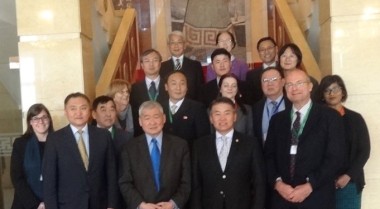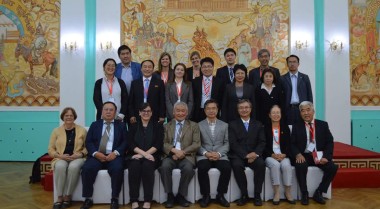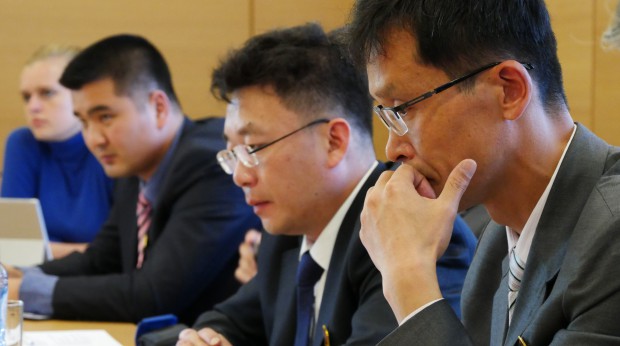
Reflections on Peace and Security in Northeast Asia
The publication Reflections on Peace and Security in Northeast Asia - Perspectives on the Ulaanbaatar Process was launched in Ulaanbaatar, Mongolia on August 29, on the occasion of the third meeting of the Ulaanbaatar Process, a civil society-led dialogue for peace and stability in Northeast Asia. The publication is a collection of essays which capture the diverse and uncompromised opinions, concerns, tensions and contradictions of a region in turmoil.
Reflections on Peace and Security in Northeast Asia - Perspectives on the Ulaanbaatar Process explores the contentious issue of nuclear weapons in the region, the current security climate on the Korean Peninsula which is frozen in a fragile armistice, as well the successes and challenges faced by non-governmental organizations in the context of peacebuilding in Northeast Asia. It features articles by the participants of the Ulaanbaatar Process; representatives of civil society from China, Japan, the Democratic People's Republic of Korea, the Republic of Korea, the United States of America, the Russian Federation as well as Mongolia.
From this week, one article of the printed publication will be made available online here.
The Ulaanbaatar Process, a civil society dialogue for peace and stability in Northeast Asia, was launched by the Global Partnership for the Prevention of Armed Conflict (GPPAC) in the Mongolian capital Ulaanbaatar in June, 2015. Coordinated by the GPPAC Global and Northeast Asia Regional Secretariats and Mongolian NGO Blue Banner, this process promotes effective regional Track 2 dialogue, seeking to strengthen the role of civil society as a complement to the Track 1 process, towards the development of an institutionalized regional peace and security mechanism for Northeast Asia. For more information about the Ulaanbaatar Process, please click here.



